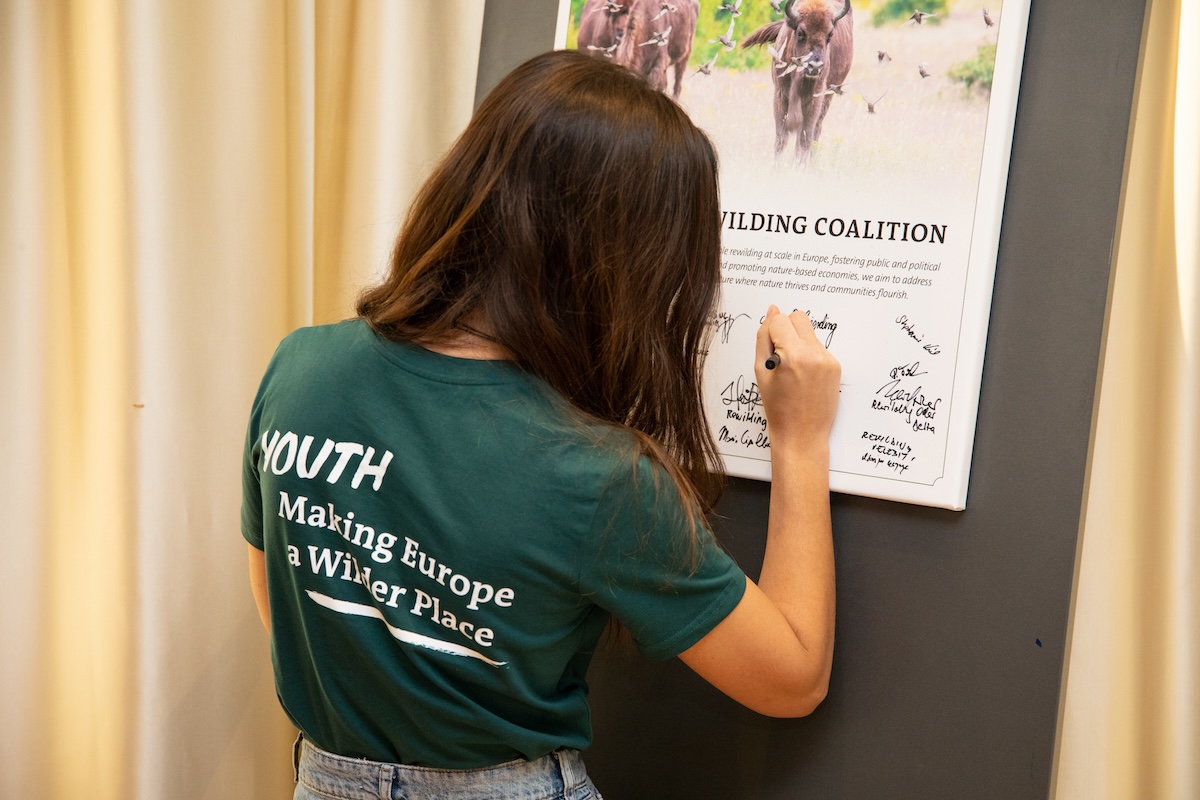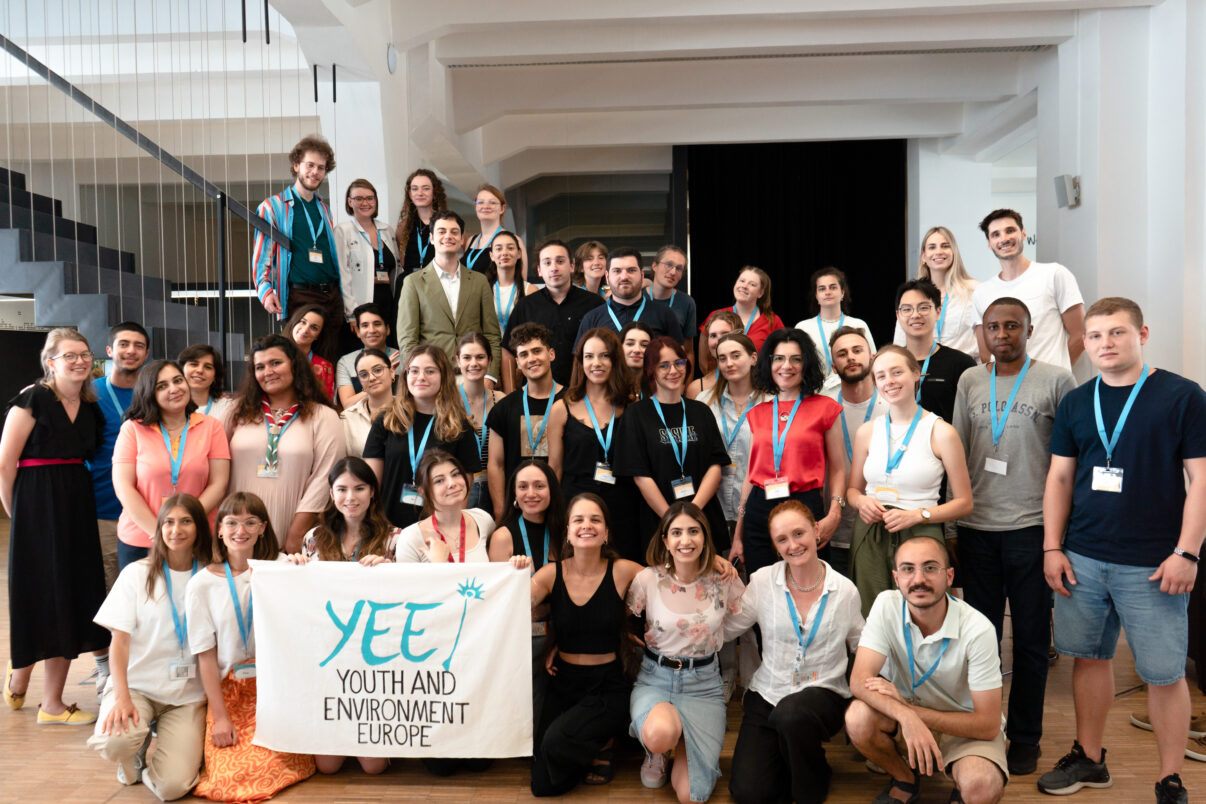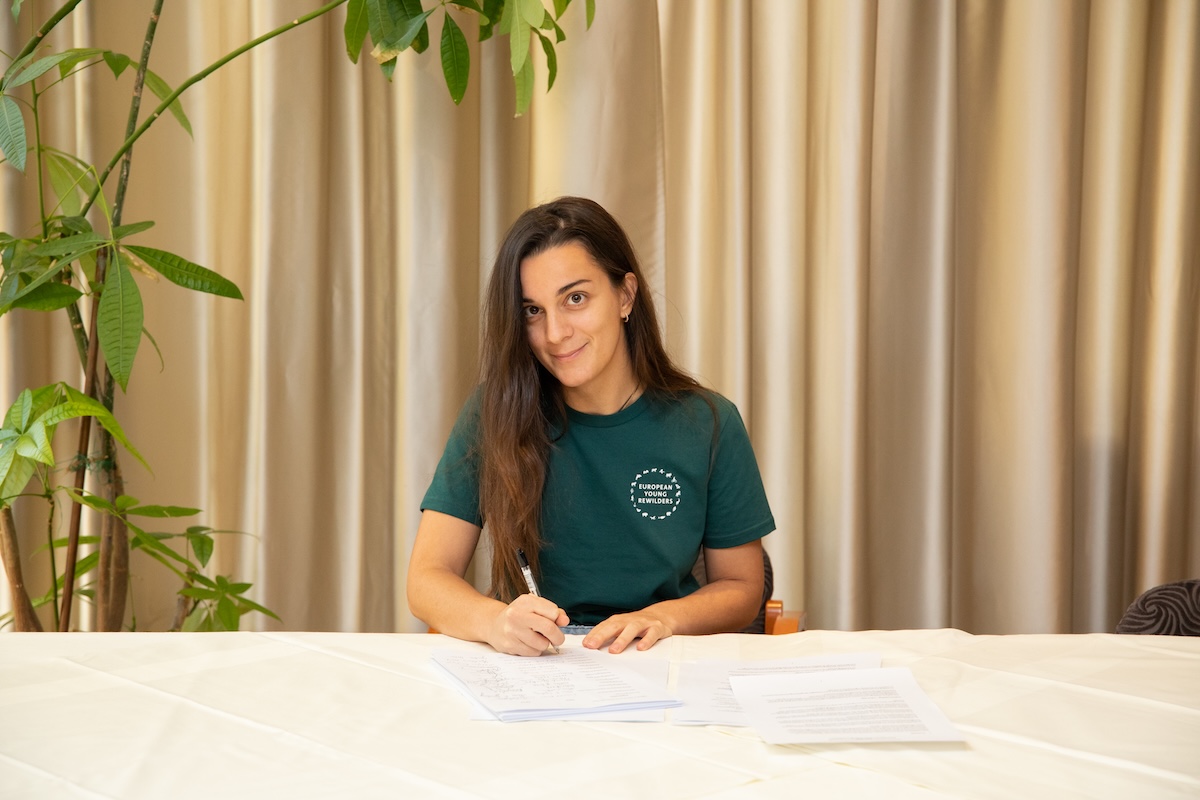Youth is not only children or future generations, are current young professionals who want to see more ambition in nature restoration efforts. Young rewilders are at the forefront of this, but struggle to find job opportunities and land to rewild. The participation in the European Rewilding Coalition in Vienna and the European Young Rewilders are both spaces and opportunities to empower these young motivated people.

An overview: youth in conservation and on environmental matters
Often, when we hear about youth, it is in the context of the importance of education, or a duty to deliver for future generations. It should not be forgotten, however, that young people are not only children, or future inhabitants of this planet.
When we speak about young rewilders, we are referring to young professionals who are living in the present. People from their late teens through to their early 30s, who are studying or in the first stages of their careers, and who have decided to dedicate their knowledge and skills to rewilding.
Young people are increasingly open to and interested in rewilding. Despite suffering from the shifting baseline syndrome, in contrast to older generations when it comes to nature and conservation, they want to see far more ambition in nature recovery efforts. This is exemplified by the joint advocacy towards the Nature Restoration Law, which saw all major EU biodiversity-focused youth organizations call for progressive, far-reaching and binding legislation that could deliver results quicky and effectively.
Youth action in environmental advocacy and issues is mostly done on a volunteer basis, which affects participation, representation, and inclusion. In decision-making, young people are often heard but rarely listened to, with their perspective not genuinely considered.
“Young people are not only stakeholders, they are also rightsholders and, as such, must be meaningfully included. Quality youth involvement and empowerment not only means doing things for youth, but with youth too.”
Youth and rewilding in Europe
Rewilding Europe, via the European Young Rewilders, launched a survey directed at young people interested in becoming active rewilders, or who have just started their own rewilding journey. The goal was to understand the perception of rewilding among youth, and what is needed for them to get involved.
The survey collected 80 responses from young people across 20 different European countries. The majority of the respondents (65%) saw rewilding as something new but growing in their region or country. However, more than 70% were discouraged by the slow pace of progress. Respondents were asked to comment on the future of rewilding over the next 10 years: around 36% believed that rewilding would become a mainstream approach, and 40% believed that rewilding would scale up, but with watered down ambition and impact. Only 24% thought that rewilding would remain limited, and carried out by small-scale initiatives.
According to young people, the most support for rewilding is provided by research organizations and NGOs, while the least backing is provided by governments and productive industries. They believed both international and cross-sectoral cooperation was essential for rewilding.
When asked for general comments about the local situation of rewilding, the most common feedback was how rewilding is often still unknown or misunderstood – and therefore controversial – and how much politics and various lobbies influence its implementation.
Along these lines, almost all respondents identified sectoral lobbies (such as farming, hunting and fisheries) and conservative politics as the main challenges to rewilding. Another recurrent theme was the challenge of people’s mentalities: outdated and ill-informed ways of thinking, shifting baseline syndrome, wrong ideas about nature, and fear. Across the survey, there were also mentions of systematic problems, such as anthropocentrism and economic systems.
Conversely, the two main perceived opportunities to scale up rewilding were seen as integration with agriculture/food system changes, and bottom-up community involvement.

What do young people need to get involved in rewilding?
According to the young people surveyed, what they needed to get involved in rewilding was, – in order of importance -,job opportunities (78%), access to land (71%), contacts and knowledge (both 56%), money (28%), and time (9%).
These numbers reflect the overarching challenge that young people face when it comes to unemployment – especially in the conservation sector – and accessing land to rewild. They also highlight the need to increase the availability of rewilding-related learning content, which would see rewilding mainstreamed in formal education.
The way forward
On November 23, the European Rewilding Coalition was launched in Vienna during a high-level meeting that brought together Europe’s leading practical rewilding organizations. By working together, the coalition membership are aiming to accelerate landscape-scale rewilding across the continent.
The EYR coordinator, Giulia Testa, was present to offer the youth perspective, while the European Young Rewilders network was among the signatory organisations of the coalition document. This will facilitate youth inclusion in the scaling up of rewilding across Europe.

A week later, the European Young Rewilders celebrated its one-year anniversary. The network was created to establish a large and active network where young rewilders from all over Europe can find and share what is needed to engage in rewilding initiatives, as well as showcase their work and inspire others.
“Looking to the future, I want to consolidate the network and enhance the benefits it offers members, with the goal of enabling them to become rewilding leaders,” says Giulia Testa.
“Through the European Young Rewilders, the huge enthusiasm and knowledge of young people can be turned into practical rewilding action.
“I do have goals in terms of numbers, but I want to focus on the quality and the catalysing role of the network. I think we now have a great opportunity to further structure the network as a high-quality tool that empowers members and makes them feel part of a community, which includes making tools such as online courses and manuals easily accessible. I would like to make our communications even more engaging, and to organize more meet-ups, workshops, and trips to Rewilding Europe’s portfolio of rewilding landscapes, because they really are inspirational for young people.”